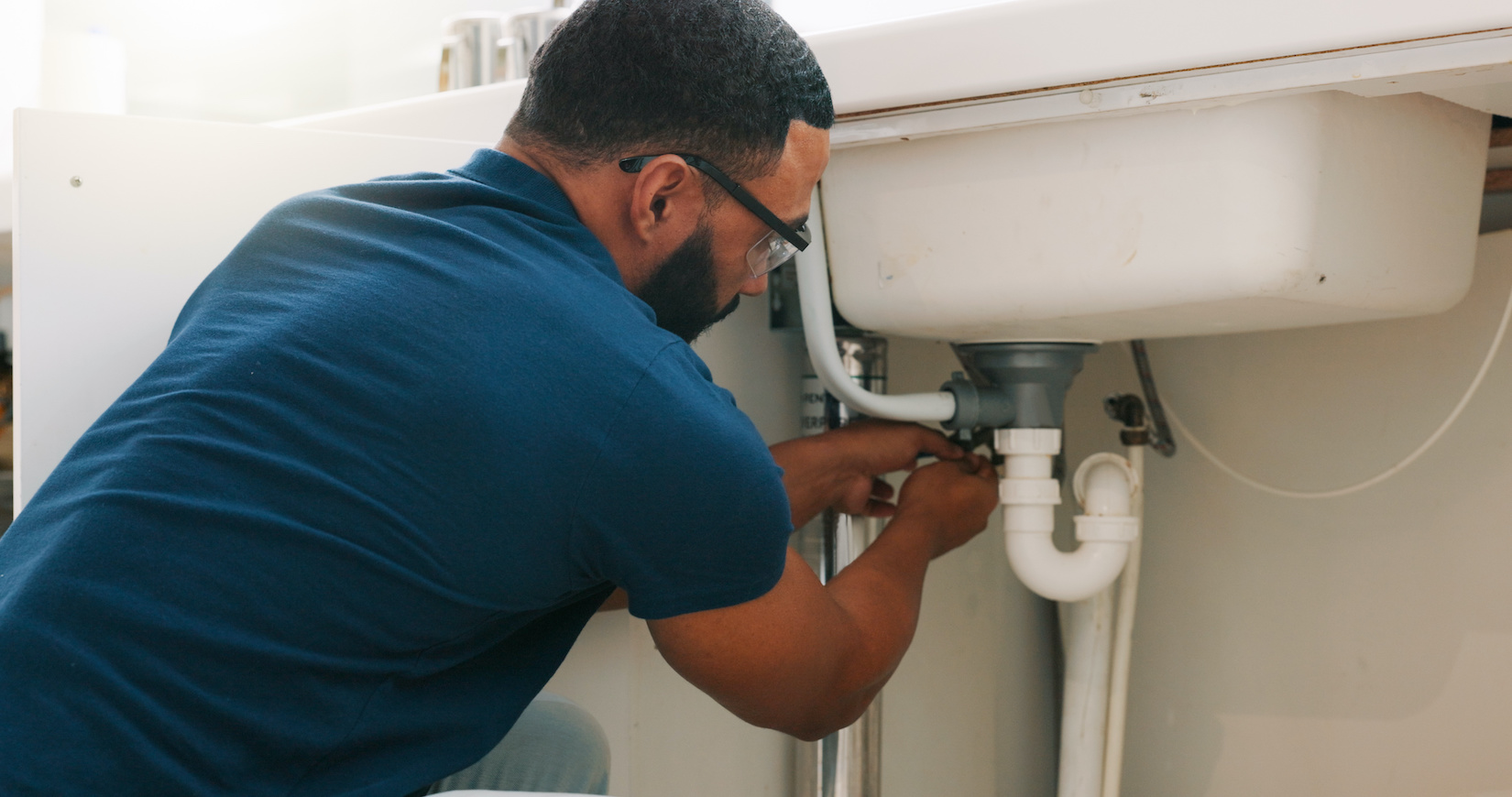Plumbing problems are a homeowner’s worst nightmare, turning a peaceful abode into a scene of waterlogged floors, soaring bills, and endless headaches. While some issues are mere inconveniences, others can escalate into full-blown disasters if not addressed promptly. This guide delves into some of the most dreaded plumbing disasters, offering insights on prevention to safeguard your home and wallet in a plumbing emergency.
Burst Pipes
The Nightmare: Imagine a sudden gush of water flooding your living space, soaking carpets, ruining furniture, and potentially compromising your home’s structural integrity. Burst pipes can occur with little warning, especially in areas of your home that are poorly insulated or exposed to freezing temperatures. The aftermath can be devastating, leading to costly repairs, mold growth, and a disrupted life.
Prevention Tips:
- Insulate pipes in vulnerable areas like attics, basements, and exterior walls with foam pipe insulation.
- Maintain a warmer indoor temperature to prevent freezing, even when you’re not home.
- Seal gaps around doors and windows to keep warm air in and cold air out, reducing the risk of freezing.
Sewer System Backup
The Nightmare: A sewer system backup is one of the most unpleasant and hazardous situations a homeowner can face. It involves sewage water reversing its course and flooding your home, carrying bacteria and viruses that pose serious health risks. The causes can range from simple clogs in your home’s lateral pipes to more complex issues like main sewer line blockages or tree root intrusion.
Prevention Tips:
- Never pour fats, oils, or grease down the drain. Wait for them to solidify and dispose of them properly in the trash.
- Plant trees away from sewer lines to minimize root intrusion.
- Install a sump pump in your basement to handle excess water during heavy rains, reducing pressure on the sewer system.
Water Heater Failure
The Nightmare: A water heater failure can range from a lack of hot water for daily needs to a significant leak flooding your basement or utility area. Corrosion inside the tank, sediment buildup, and pressure issues are common culprits. In extreme cases, the tank can rupture, releasing gallons of water and causing immediate and extensive damage to your property.
Prevention Tips:
- Test the temperature and pressure relief valve annually to ensure it opens freely, preventing pressure buildup.
- Set the temperature to 120°F to reduce sediment buildup and lower the risk of overheating.
- Inspect the anode rod every two years and replace it if there is significant corrosion to protect the tank from rust.
Major Leaks
The Nightmare: Major leaks, whether from a faulty appliance, damaged pipes, or compromised plumbing fixtures, can go unnoticed for some time, causing silent destruction. Floors may warp, walls might develop mold, and your utility bills can skyrocket. The damage can be extensive, leading to a home that feels more like a construction site as repairs are made.
Prevention Tips:
- Use water leak detectors in key areas like under sinks and near appliances to catch leaks early.
- Regularly inspect appliance hoses and connections (e.g., washing machines, dishwashers) for wear and replace them as needed.
- Consider a whole-house water monitoring system that detects leaks and automatically shuts off the water supply if a major leak is detected.
Clogged Drains
The Nightmare: Clogged drains are a common household nuisance but can escalate into a plumbing disaster if left unchecked. Severe blockages can lead to slow drainage, water backing up, and, in the worst cases, sewage backup into your home. Kitchen sinks become unusable, showers turn into shallow baths, and the risk of water damage and unsanitary conditions increases.
Prevention Tips:
- Use enzymatic cleaners monthly in drains to break down potential clogs without damaging pipes.
- Avoid disposing of coffee grounds, eggshells, and starchy foods in the sink as they can contribute to clogs.
- Clean pop-up stoppers in sinks regularly to prevent hair and soap buildup.
Overflowing Toilets
The Nightmare: Overflowing toilets can lead to immediate water damage, create slip hazards, and expose occupants to harmful bacteria. Common causes include clogs from non-flushable items, blockages in the main drain, or malfunctioning components within the toilet itself, such as a faulty flapper or fill valve.
Prevention Tips:
- Close the toilet flapper manually to stop additional water from entering the bowl if you see the water rising.
- Keep a high-quality plunger in each bathroom for quick response to clogs.
- Consider upgrading to a modern toilet with a more powerful flush that can reduce the likelihood of clogs.
Sump Pump Failure
The Nightmare: Sump pumps are in charge of draining excess water from your foundation. Sump pump failures during heavy rainfalls or rapid snowmelts can lead to basement flooding, damaging floors, walls, personal property, and leading to mold growth. Failures can occur due to power outages, mechanical failures, or improper maintenance.
Prevention Tips:
- Clean the sump pump and pit annually to remove debris that could cause malfunctions.
- Install a water-powered backup sump pump if you live in an area with frequent power outages, as it doesn’t rely on electricity.
- Regularly inspect the discharge line to ensure it’s not blocked or frozen, allowing water to be pumped away from your home efficiently.
How to Mitigate Risks and Manage Emergencies
Regular Maintenance: The key to preventing plumbing disasters lies in routine maintenance. Annual inspections by a qualified plumber can catch potential problems before they escalate.
Know Your Home: Familiarize yourself with the main water shut-off valve and how to turn off appliances and fixtures. Quick action can minimize damage in an emergency.
Professional Help: For issues beyond basic maintenance, hiring a professional plumber is crucial. DIY fixes can sometimes exacerbate the problem.
Proactive Steps to Safeguard Your Home Against Plumbing Mishaps
While plumbing disasters are daunting, proactive measures can significantly reduce their likelihood and impact. Regular maintenance, proper usage, and immediate action at the first sign of trouble can keep your plumbing system running smoothly. For the best results, partner with trusted professionals like Steel T Home Services, who can provide expert advice, routine inspections, and emergency repairs to protect your home from plumbing nightmares. Remember, prevention is always better than cure, especially regarding plumbing. Contact us today to address your emergency plumbing needs in Denver today!
Steel T Home Services is Denver's choice for HVAC, plumbing & electrical needs. With over 40 years of experience in serving our valued customers’ needs, Steel T is committed to providing unparalleled comfort to your home.



